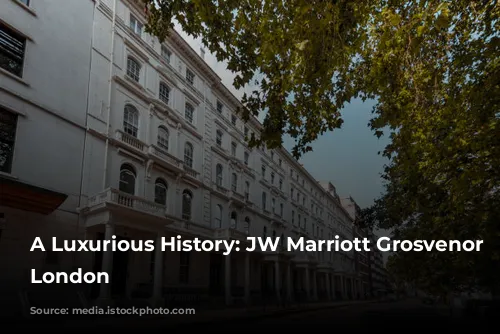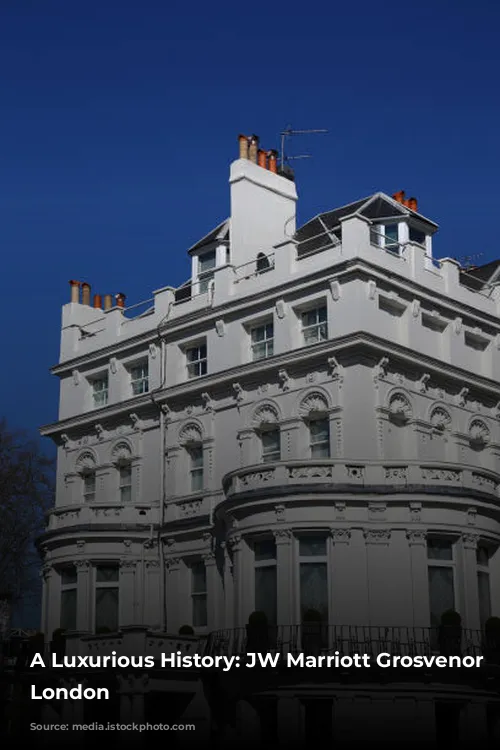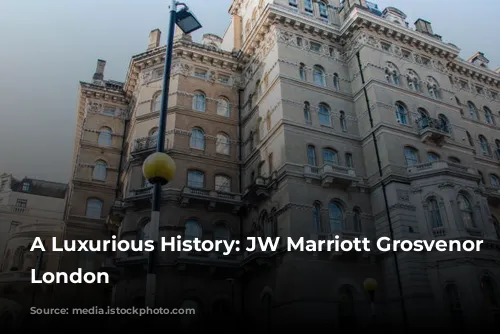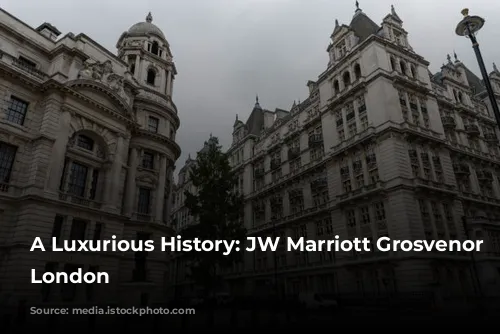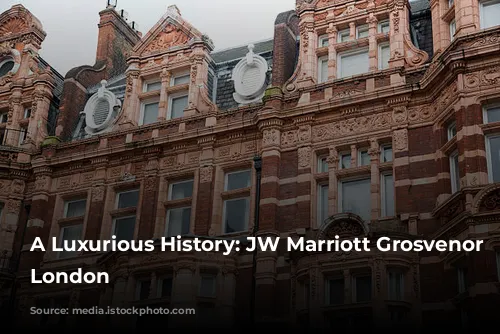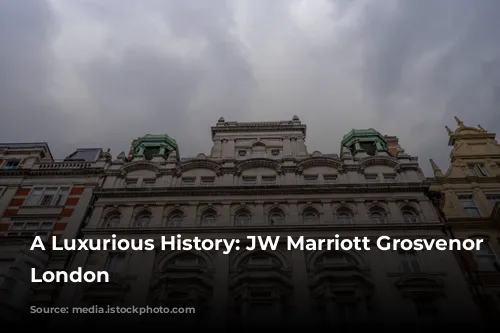JW Marriott Grosvenor House London, a luxurious hotel in London’s Mayfair district, boasts a rich history dating back to 1929. Standing across from Hyde Park, it occupies the former grounds of the aristocratic Grosvenor House residence from the 19th century. Today, Katara Hospitality, a Qatari company, owns the hotel, while JW Marriott Hotels, a brand of Marriott International, manages its operations.
A Grand Beginning and the Vision of Edwards
The Grosvenor House Hotel, as it was originally known, emerged from the vision of Arthur Octavius Edwards in the 1920s. Edwards envisioned a grand hotel on the site of Grosvenor House, the London residence of the Dukes of Westminster, whose family name is Grosvenor. He spearheaded the construction, overseeing the project as chairman for a decade.
A Dedicated Manager Shapes the Hotel
In 1929, A.H. Jones, a former associate of Edwards, joined the hotel as an accountant. He quickly rose through the ranks, becoming the general manager in 1936 at the young age of 29. Jones dedicated himself to the hotel, leading it for decades, apart from a brief wartime service with the Royal Artillery and the NAAFI.
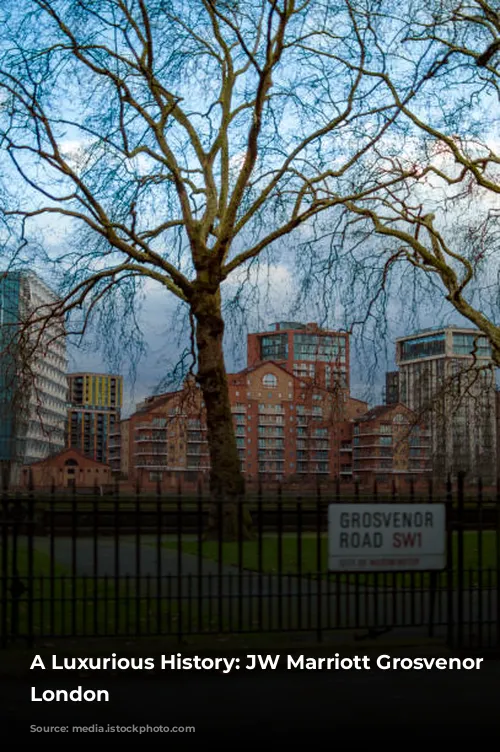
A Touch of Aviation and Wartime Service
In 1934, the hotel garnered significant attention when Edwards named his de Havilland DH.88 Comet racer after it, the plane went on to win the MacRobertson England-Australia Air Race. Today, this restored aircraft, adorned with its original livery, still flies with the Shuttleworth Collection.
The hotel’s grand scale also proved valuable during World War II. Grosvenor House served as a vital resource for the war effort. The Great Room became a gathering place for officers, including renowned generals like Dwight D. Eisenhower and George S. Patton.
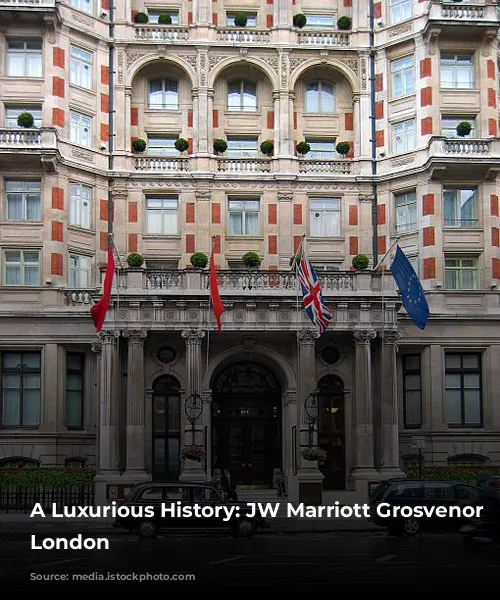
Expansions and Transformations: From Rink to Ballroom
The hotel’s initial plans were delayed due to a long-standing dispute with Bruno, Baron Schröder. Schröder refused to relinquish the lease of a nearby property, delaying the expansion of the hotel until his passing in 1940. Eventually, permission to demolish the house was granted in 1956, leading to the construction of a 92-bedroom addition, inaugurated in 1957.
Grosvenor House underwent a significant transformation in 2008, following a four-year renovation and restoration project costing £142 million. The renovation encompassed every aspect of the hotel, from guest rooms and restaurants to health facilities and public spaces.
The hotel’s iconic Great Room, which was initially designed as an ice rink, has been transformed into a banquet hall, capable of accommodating over 2,000 guests.
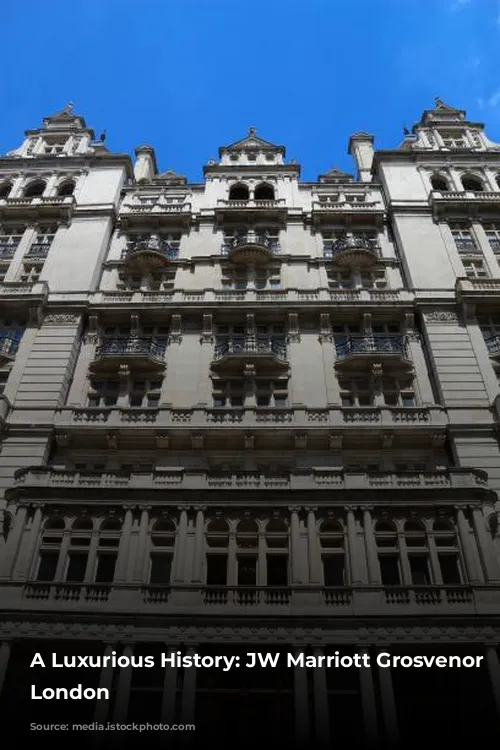
Ownership Changes and Modern-Day Challenges
Sahara India Pariwar, an Indian conglomerate, acquired the hotel in 2010 for £470 million. In 2017, however, the company faced criticism for hosting the Aerospace Defence Security group (ADS) annual gathering, which drew protests from activists concerned about the role of ADS member companies in the arming of Saudi Arabia during its conflict in Yemen.
After turning down a £600 million offer from British billionaires, Sahara India Pariwar ultimately sold the hotel to Ashkenazy Acquisition Corporation, a US-based firm. Katara Hospitality, owned by the Qatar Investment Authority, acquired the hotel in 2018 for an undisclosed sum.
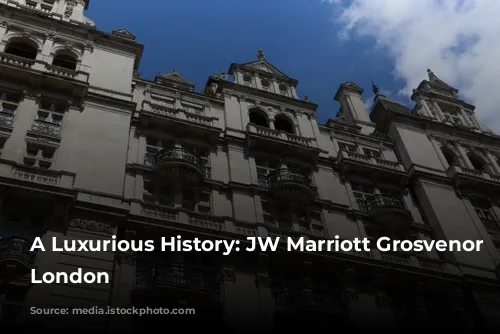
A Legacy of Luxury and Innovation
From its opening in 1929, Grosvenor House distinguished itself through its luxurious amenities. It was among the first London hotels to offer private bathrooms and entrances for each room, along with running iced water. The hotel also housed the International Sportsmen’s Club, offering amenities like Turkish baths, a swimming pool, squash courts, and a gymnasium.
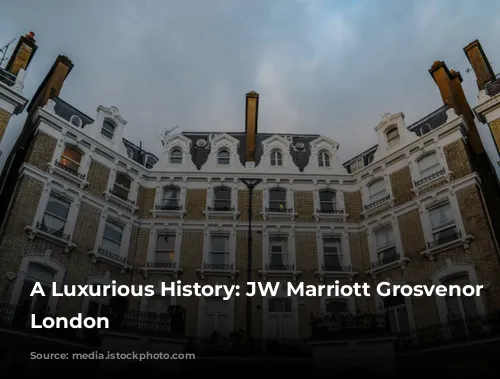
A Grand Ballroom and Historic Events
The Great Room at Grosvenor House has hosted a multitude of notable events, including prestigious award ceremonies like the Asian Awards, Pride of Britain Awards, and the O2 Silver Clef Awards, as well as charity balls and other gatherings. The room has become a fixture on British television, featuring regularly in broadcasts.
This grand space also served as the site of the world’s oldest charitable ball, the Royal Caledonian Ball, since the 1930s. It stands as one of Europe’s largest ballrooms, with a capacity exceeding 2,000 people.
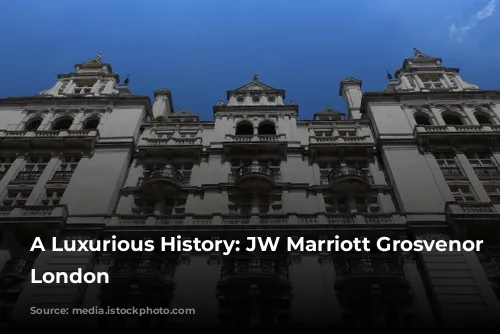
A Rich Legacy of the Past and Present
Grosvenor House stands as a testament to its legacy, combining historical significance with modern amenities. From its origins as a luxurious residence to its transformation into a prominent hotel, JW Marriott Grosvenor House London continues to attract guests and remain a landmark in the heart of Mayfair, London.
